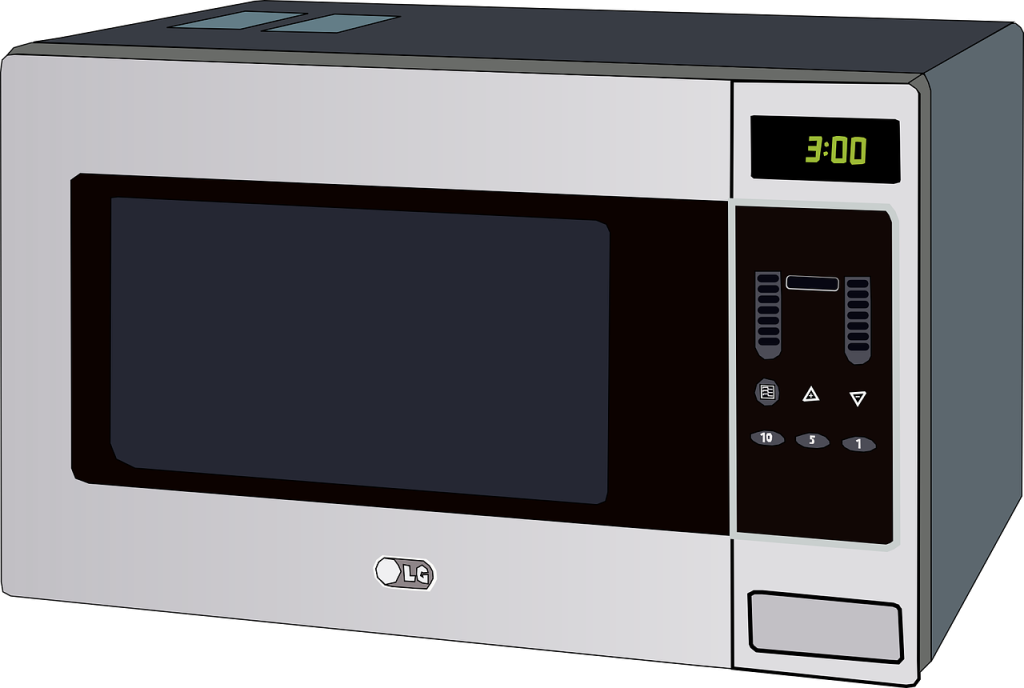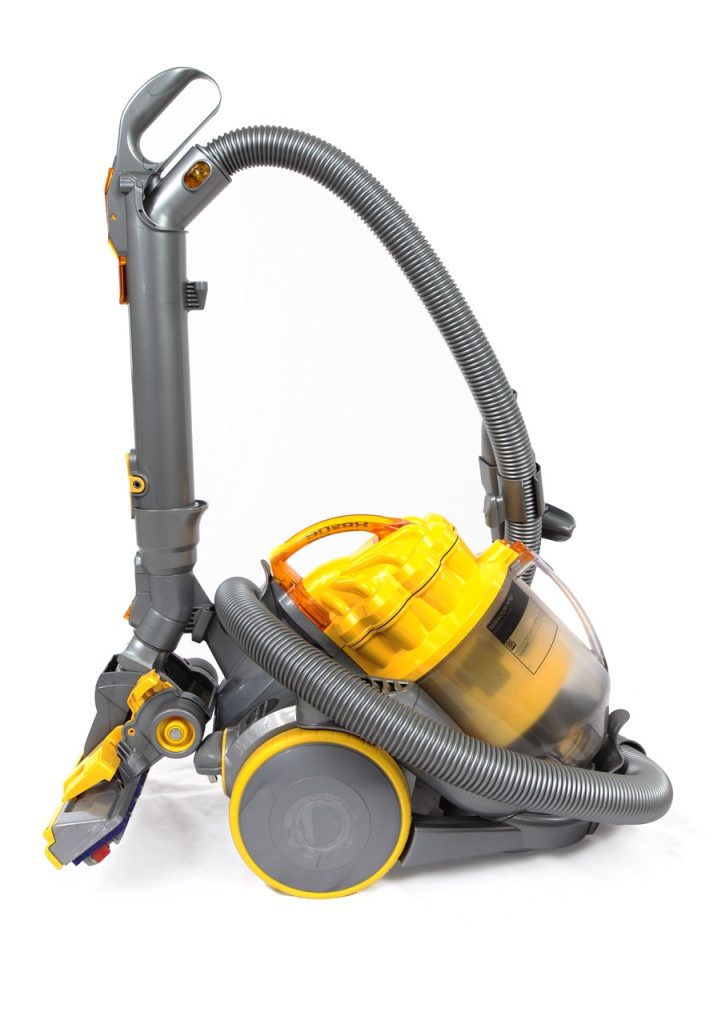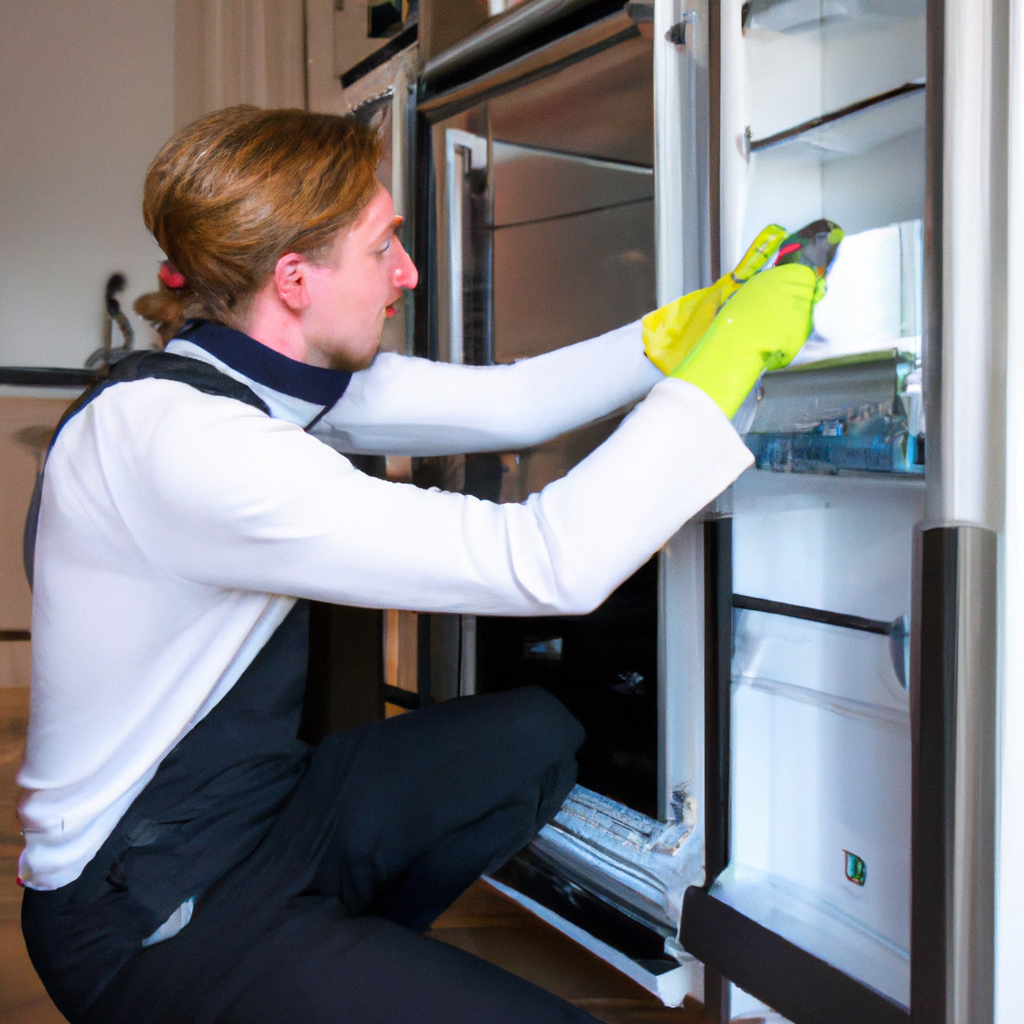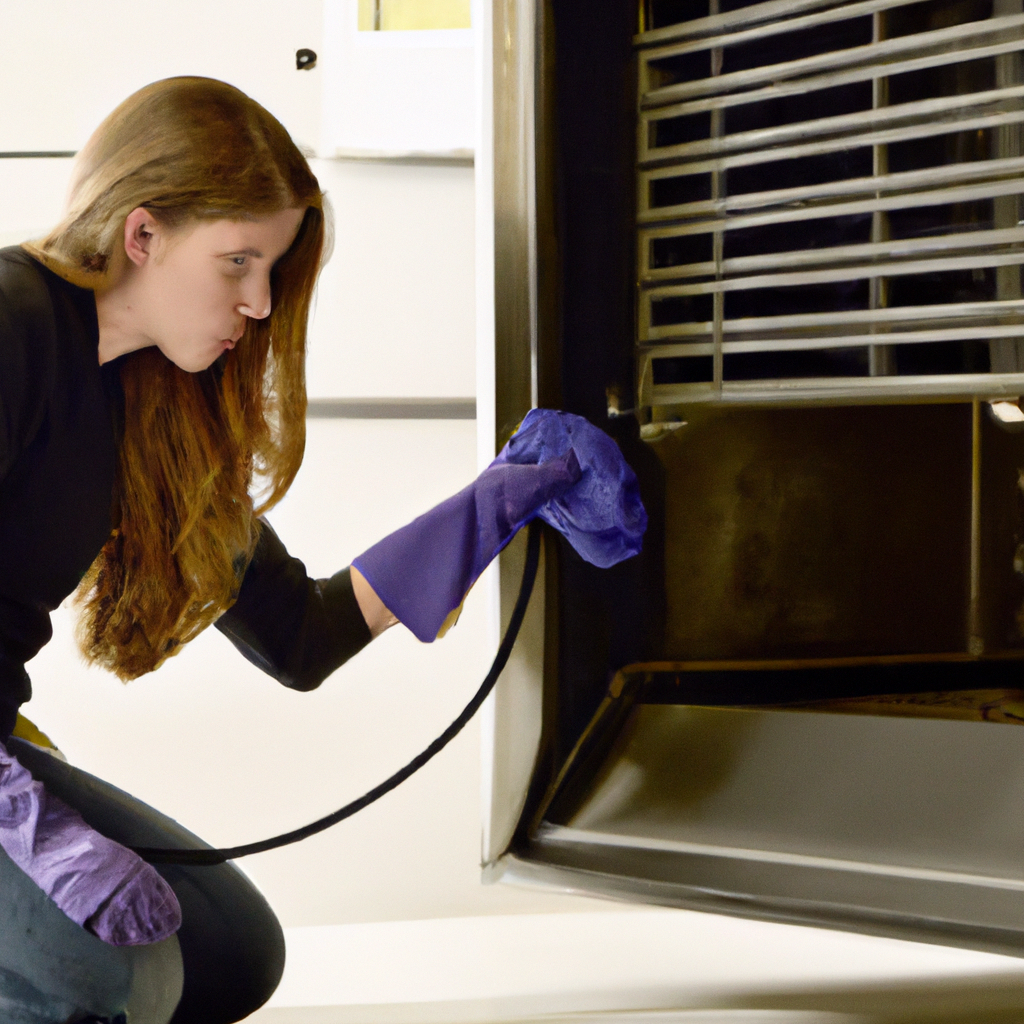6October 2023
In today’s busy world, keeping our homes clean and organized can often feel like a never-ending task. From dusting shelves to vacuuming carpets, there’s always something that needs our attention. But when it comes to cleaning inside appliances like ovens and refrigerators, is it something that we commonly prioritize? Are we aware of the benefits of giving these appliances a thorough cleaning? In this article, we will explore the importance of cleaning inside appliances and whether it is a service that is commonly sought after by homeowners. So, grab a cup of coffee and join us as we discover the world of appliance cleanliness!

This image is property of pixabay.com.
Introduction
Overview of cleaning inside appliances
Cleaning inside appliances, such as ovens and refrigerators, is an essential task in maintaining a clean and hygienic living environment. Over time, these appliances can accumulate dirt, grime, and food particles, which can not only affect their performance but also pose health risks. Regular cleaning of the interiors of these appliances is necessary to ensure their optimal functioning and to prevent the buildup of bacteria and unpleasant odors.
Importance of maintaining cleanliness
Maintaining cleanliness inside appliances is crucial for several reasons. Firstly, it ensures that the appliances function at their best, allowing for efficient and effective performance. Secondly, it helps to eliminate the presence of harmful bacteria, mold, and other contaminants that can compromise the safety of the food stored or cooked in these appliances. Lastly, a clean appliance enhances the overall aesthetic appeal and increases the longevity of the appliance, saving you money in the long run.
Common challenges faced
Cleaning inside appliances can pose several challenges, primarily due to the accumulation of stubborn stains, grease, and food residues. Additionally, reaching difficult-to-access areas and eliminating persistent odors can also be problematic. Furthermore, improper cleaning techniques or the use of harsh chemicals can potentially damage delicate parts of the appliances. It is important to be aware of these challenges and employ suitable methods and cleaning products to ensure a thorough and safe cleaning process.
Ovens
Types of ovens
Ovens come in various types, including conventional, convection, and self-cleaning ovens. Conventional ovens are the most common and utilize heating elements at the top and bottom to cook food. Convection ovens, on the other hand, have a fan that circulates hot air for more even and faster cooking. Self-cleaning ovens use high heat to burn off food residues, making the cleaning process easier.
Frequency of cleaning
The frequency of cleaning an oven depends on its usage. For avid cooks who regularly use their ovens, a monthly or bi-monthly cleaning is recommended. However, for those who use their ovens less frequently, a deep clean every six months should suffice.
Methods for cleaning
When it comes to cleaning ovens, there are various methods to choose from. One common approach is to use a mixture of baking soda and water to create a paste that can be applied to the interior surfaces of the oven. Letting the paste sit for a few hours, or even overnight, helps to loosen dirt and grease. Another option is to use commercial oven cleaners, which are specifically designed to tackle tough stains and baked-on residues.
Cleaning materials and products
To effectively clean the inside of your oven, you will need a few cleaning materials and products. Some essential items include rubber gloves to protect your hands, a scrub brush or sponge for scrubbing away grime, and a microfiber cloth for wiping surfaces. Baking soda, white vinegar, and dish soap are commonly used household products that can help remove stubborn stains and eliminate odors. Additionally, there are a variety of commercial oven cleaning products available that can be effective in tackling tough messes.
Refrigerators
Importance of cleaning refrigerators
Cleaning the inside of your refrigerator is crucial to maintain food safety and prevent the growth of harmful bacteria. Over time, spills, drips, and food particles can accumulate, creating a breeding ground for bacteria and unpleasant odors. Regular cleaning not only ensures the longevity of your refrigerator but also helps to preserve the quality and safety of the food stored inside.
Frequency of cleaning
To keep your refrigerator clean and hygienic, it is recommended to clean it once every three to four months. However, if you notice any spills or food residues, it is advisable to clean them up promptly to avoid the buildup of bacteria and prevent any transfer of odors to other food items.
Cleaning process for different areas
When cleaning your refrigerator, it is essential to focus on different areas to ensure a thorough cleaning. Start by removing all the items from the refrigerator, discarding expired items, and separating any spills or drips. Next, remove the shelves, drawers, and door bins and wash them with warm, soapy water. Wipe down the interior surfaces of the refrigerator using a mixture of water and vinegar or a gentle cleaning solution. Lastly, dry all surfaces thoroughly before returning the cleaned shelves and items back into the refrigerator.
Dealing with food spills and odor
Addressing food spills promptly is key to maintaining a clean refrigerator. For spills, prepare a solution of warm water and dish soap, dip a sponge or cloth into the mixture, and gently scrub away the spill. For tough stains or odors, you can place an open box of baking soda in the refrigerator to absorb unwanted odors. Additionally, using activated charcoal or coffee grounds can help neutralize stubborn smells.
Avoiding cross-contamination
To prevent cross-contamination and ensure food safety, it is important to keep raw meats and vegetables separate from ready-to-eat foods in the refrigerator. Use sealed containers or zip-lock bags to store raw meats and ensure they are placed on a lower shelf to prevent any drips or leakage. Additionally, regularly wipe down and sanitize the refrigerator handles to minimize the transfer of bacteria.
Other Appliances
Microwaves
Microwaves are notorious for collecting food splatters and spills, making regular cleaning essential. To clean the interior of your microwave, place a bowl of water with a few slices of lemon or a tablespoon of vinegar inside and heat it for a few minutes. The steam created will loosen any stuck-on food, making it easier to wipe away with a damp cloth or sponge. Exterior surfaces can be wiped down with a mild cleaning solution and a soft cloth.
Dishwashers
While dishwashers are designed to clean dishes, they also require regular cleaning to maintain their efficiency. Remove any food debris from the filter and spray arms, and give them a good rinse to ensure proper water flow. Run an empty cycle with a cup of white vinegar or dishwasher cleaning tablet to remove any buildup or odors. Wipe down the exterior with a damp cloth and a mild detergent.
Washing Machines
Washing machines can harbor mold, mildew, and unpleasant odors if not cleaned regularly. Run a cleaning cycle with hot water, bleach, or a washing machine cleaner to eliminate any buildup of detergent residue or mildew. After each use, leave the door slightly ajar to allow air to circulate and prevent the growth of mold. Additionally, wipe down the exterior and control panel with a damp cloth to keep it looking clean.
Deep Freezers
Deep freezers are prone to accumulating frost and ice, which can affect their performance and storage capacity. Defrost your deep freezer at least once a year or whenever the ice buildup exceeds half an inch. Remove all the contents, unplug the freezer, and allow the ice to melt naturally. Once defrosted, wipe down the interior with a solution of water and baking soda to remove any residues. Dry the interior completely before plugging the freezer back in.

This image is property of pixabay.com.
Benefits of Professional Cleaning Services
Time and effort saving
One of the primary benefits of hiring professional cleaning services for your appliances is the time and effort you can save. Cleaning these appliances can be a time-consuming and labor-intensive task, so leaving it in the hands of professionals allows you to focus on other important aspects of your life.
Thorough and efficient cleaning
Professional cleaners are trained to provide a thorough and efficient cleaning service. They have the knowledge and experience to tackle tough stains, grease, and hard-to-reach areas with ease. By using specialized cleaning techniques and high-quality cleaning products, professionals can ensure that your appliances are cleaned to the highest standards.
Specialized cleaning techniques
Different appliances require different cleaning techniques to achieve optimal results. Professional cleaners are well-versed in these techniques and know the best practices for cleaning each appliance. Whether it’s steam cleaning, pressure washing, or using specific cleaning agents, professionals have the expertise to determine the most suitable approach for your appliances.
Extended appliance lifespan
Regular professional cleaning can help extend the lifespan of your appliances. By removing dirt, grime, and food residues, professionals prevent these particles from affecting the performance and longevity of your appliances. Additionally, the specialized cleaning techniques used by professionals can minimize wear and tear on delicate parts, ensuring that your appliances last longer.
DIY Cleaning Tips
Using natural cleaning solutions
For those who prefer a more environmentally-friendly approach, there are several natural cleaning solutions that can be used. Baking soda and vinegar are versatile cleaning agents that can effectively remove stains, eliminate odors, and disinfect surfaces. Lemon juice and salt are also excellent natural cleaners, particularly for removing rust stains. DIY cleaning solutions not only avoid the use of harsh chemicals but are also cost-effective.
Preventive maintenance
Preventive maintenance plays a key role in keeping your appliances clean and in optimal condition. Simple habits such as wiping spills immediately, regularly emptying and cleaning filter systems, and conducting routine inspections can help prevent the buildup of dirt and grime. By adopting preventive measures, you can reduce the frequency and intensity of deep cleaning sessions.
Regular cleaning schedules
Establishing regular cleaning schedules for your appliances is essential to ensure they remain clean and functional. This includes setting aside dedicated time each month or season to thoroughly clean your appliances. By incorporating regular cleaning into your routine, you can maintain a hygienic environment and prevent the accumulation of dirt and grime.
Proper ventilation and air circulation
Proper ventilation and air circulation are crucial for preventing the growth of mold and mildew inside your appliances. Ensure that your appliances, such as refrigerators and washing machines, are situated in well-ventilated areas. Additionally, using fans or opening windows during and after cooking can help improve airflow and remove excess moisture, reducing the chances of mold and odors.

This image is property of pixabay.com.
Common Challenges and Solutions
Stubborn stains and grease
Stubborn stains and grease can be challenging to remove, especially in hard-to-reach areas of appliances. To tackle these, create a paste using baking soda and water or dish soap and apply it to the stained area. Let it sit for a few minutes to loosen the dirt, then scrub with a brush or sponge. Rinse thoroughly with water and repeat if necessary.
Dealing with burnt residue
Burnt residue, particularly in ovens, can be tough to remove. For light residues, sprinkle baking soda on the burnt areas and mist with water. Let it sit overnight, then scrub with a sponge or cloth. For heavier residues, mix equal parts vinegar and water in a spray bottle, generously spray the burnt areas, and let it sit for several hours. Scrub with a brush and rinse thoroughly.
Cleaning hard-to-reach areas
Cleaning hard-to-reach areas, such as crevices and small corners, can be a challenge. To reach these areas, use a flexible brush or toothbrush to loosen dirt and grime. Alternatively, wrap a cloth around a thin spatula or stick to wipe away dust and debris from narrow spaces. If possible, remove detachable parts to access hidden areas more easily.
Avoiding damage to delicate parts
When cleaning appliances with delicate parts, such as control panels or touch screens, it’s important to follow manufacturer guidelines and use gentle cleaning solutions. Avoid using abrasive cloths or scrub brushes that can scratch or damage the surfaces. Instead, opt for microfiber or soft cloths and mild cleaning agents to ensure a safe and effective cleaning process.
Eliminating persistent odors
Persistent odors can be a common issue, especially in refrigerators and microwaves. To eliminate odors, place an open box of baking soda or a bowl of coffee grounds in the appliance. These natural deodorizers will absorb and neutralize unpleasant smells. Additionally, wiping surfaces with a mixture of water and vinegar can help eliminate odors and leave your appliances smelling fresh.
Safety Precautions
Switching off appliances
Before starting any cleaning process, it is crucial to ensure that the appliance is switched off and unplugged from the power source. This eliminates the risk of electric shock and ensures your safety while cleaning. Always follow the manufacturer’s instructions for each appliance to make sure you’re taking the necessary precautions.
Protective gear and equipment
To protect yourself during the cleaning process, it is important to wear appropriate protective gear and equipment. Rubber gloves should be worn to shield your hands from harsh chemicals and potential allergens. If cleaning involves the use of chemicals that produce fumes, consider wearing a mask or working in a well-ventilated area to avoid inhalation.
Proper handling of cleaning agents
When using cleaning agents, it is important to follow the instructions provided by the manufacturer. This includes diluting the cleaning solution as advised and ensuring proper storage of chemicals out of reach of children and pets. Avoid mixing different cleaning agents, as this can lead to hazardous reactions. If accidental ingestion or exposure occurs, seek medical attention immediately.
Avoiding electrical hazards
When cleaning appliances, it is important to be cautious of electrical hazards. Avoid spraying or pouring liquids directly onto electrical components, as this can damage the appliance or result in electric shock. Use damp cloths or sponges instead to wipe down surfaces. Additionally, avoid submerging electrical parts in water or using excessive amounts of water when cleaning.

Professional vs. DIY Cleaning
Cost comparison
When deciding between professional cleaning services and DIY cleaning, cost is a factor to consider. DIY cleaning tends to be more cost-effective as it eliminates the expense of hiring professionals. However, it is important to weigh this against the time and effort involved in cleaning appliances thoroughly. Professional cleaning services may provide a more efficient and comprehensive cleaning, making it a worthwhile investment for some.
Experience and expertise
Professional cleaners have the advantage of experience and expertise in cleaning appliances. They are trained to tackle various types of stains, stubborn grease, and hard-to-reach areas effectively. Their knowledge of specialized cleaning techniques and products ensures a thorough cleaning that may be challenging to achieve through DIY methods.
High-quality results
Professional cleaning services often provide high-quality results that surpass DIY cleaning. Their attention to detail and use of specialized equipment and cleaning agents can achieve a level of cleanliness that may not be achievable with household items alone. Professional cleaning can leave your appliances looking and functioning like new.
Warranty implications
It is important to check the warranty terms of your appliances before deciding between professional cleaning services and DIY cleaning. Some warranties may require professional cleaning to remain valid, while others may allow for DIY cleaning. Adhering to the warranty requirements ensures that you can take advantage of any repair or replacement services offered by the manufacturer.
Conclusion
In conclusion, cleaning inside appliances like ovens and refrigerators is a common service that is crucial for maintaining a clean and hygienic living environment. Regular cleaning, whether done professionally or as a DIY task, ensures the optimal functioning of these appliances, eliminates the presence of harmful bacteria, and prolongs their lifespan. By incorporating proper cleaning techniques, utilizing suitable cleaning materials and products, and following safety precautions, you can maintain a healthy living environment and enjoy the benefits of appliances that are clean, efficient, and long-lasting.

